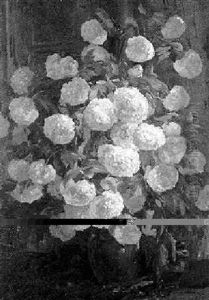Ferdinand Zix Paintings
Ferdinand Zix, a name less recognized in the mainstream history of art, was a German artist who contributed significantly to the European art scene of the 20th century. Born in 1892, in Germany, Zix's early life was steeped in an environment that was rapidly changing both politically and culturally. These transformations across Europe deeply influenced his artistic journey, making his work a reflection of the tumultuous times he lived in. Despite the lack of widespread recognition, Zix's contributions to art, especially painting and printmaking, have garnered appreciation among art historians and collectors who have taken the time to delve into his oeuvre.
Zix's artistic career spanned several crucial phases of modern art, including Expressionism and New Objectivity, movements that sought to capture the essence of human experience and the realities of a society in flux. His work, characterized by a keen observation of social dynamics and a profound sense of empathy, mirrors the existential angst and the socio-political critique prevalent in the art of his time. Although primarily a painter, Zix was also known for his exceptional skills in printmaking, a medium through which he explored a variety of themes ranging from human suffering to the beauty of the natural world.
Throughout his life, Ferdinand Zix remained somewhat aloof from the mainstream art world, choosing instead to focus on his personal vision and technique. This autonomy allowed him to develop a unique style that, while reflective of the broader movements of his time, also stood apart due to its introspective depth and individuality. His works, though not as prolifically displayed in major galleries and museums as those of his contemporaries, have been subject to renewed interest in recent years, with art historians and critics acknowledging his role in the broader narrative of 20th-century European art.
Zix lived through two World Wars, experiences that undoubtedly shaped his perspectives and thus his art. The themes of loss, despair, and the search for meaning are recurrent in his works, offering a window into the soul of a society confronting its own fragility. Despite these heavy themes, there is also a sense of resilience and hope that permeates his art, suggesting a belief in the possibility of renewal and redemption.
Ferdinand Zix passed away in 1972, leaving behind a legacy that, while not as celebrated as that of some of his peers, offers invaluable insights into the complexities of human emotion and the artistic expression thereof. Today, as scholars continue to explore the depths of 20th-century art, Zix's work offers a poignant reminder of the power of art to reflect and shape the human experience amidst the shifting sands of history.












